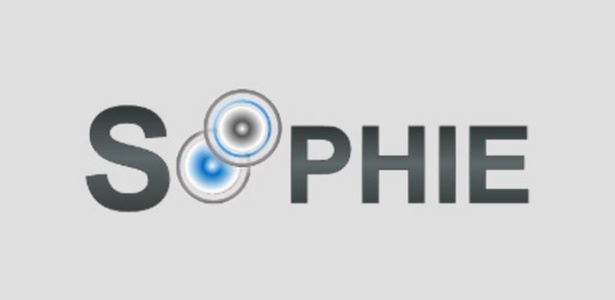By employing virtual technologies, decision-makers can compare planned and actual processes directly during production, and use simulations to ensure interventions in the ongoing production process. As a developer, GROB is one of the industrial project partners alongside Volkswagen AG, Festo AG and Vorwerk. The relevant GROB project managers have a say in the central issues of this research project.
As project heads, together with their teams, they represent GROB-WERKE in this challenging BMBF research project. What inspired GROB to participate in the SOPHIE project?
First of all, we would like to state that we are very proud that GROB-WERKE has been selected as one of the consortium partners in this highly-coveted project. Our motives are clear: we want to be pioneers in “Industry 4.0”, and our participation promises to provide an innovative leading edge. The fact alone that we were selected is an indication that our endeavors have been recognized by outsiders, and that our developments are predominantly future-oriented. On the whole, our participation in the BMBF project is something special and a great honor for us.
Who are the partners in this project?
On the scientific side, the project is managed by the Festo Lernzentrum Saar GmbH (Festo Learning Centre), the Chemnitz University of Technology (Program in Factory Planning and Operations), the Ruhr University Bochum (Program in Production Systems), the joint working group of RUB/IG Metall, GEFASOFT AG and SimPlan AG. User companies involved in the research project are Volkswagen AG, Festo AG as well as Vorwerk. The German Engineering Association (VDMA) and Siemens in Munich are associate partners in the project.
What is the specific purpose of this project?
In the future, manufacturing will be faced with increasing product individualization and heightened flexibility requirements accompanied by cost reduction pressure as well as limited predictability of the economic environment. Consequently, industry must be prepared for an increasing number of short-cycle adaptations to production planning and control. Thus, decisions will have to be made within increasingly shorter response times despite a flood of mixed information. This means that goal-oriented virtual technologies can be employed continuously in manufacturing to support planning and control processes. In this context, the SOPHIE project offers a solution that can meet the challenges to production outlined here.
What is the benefit for GROB?
We at GROB likewise have to face up to this challenge. With the incremental introduction of the tools of the digital factory (e.g. simulation systems) and information technology ( e.g. ERP, BDE, MES, etc.) our customers have experienced a flood of information on all hierarchical levels. On the other hand, spreadsheet applications frequently represent manual interfaces between systems and processes. Against this background, the relevance of seamless processes, automatic data collection and assessment as well as the ability to make decisions across hierarchical levels and, if needed, extramural boundaries, has grown in importance for the competitiveness of every enterprise. We anticipate that the SOPHIE project will aid us in providing added value for our customers by enabling them to operate our systems more efficiently.
What are our tasks in the project? What is expected of GROB?
As a machine tools manufacturer, GROB provides the “reality” to which the virtual world should be linked. In addition to this interface – to be fleshed out in the course of the project – we are also applying our expertise to the machine itself and the related optimum operating strategy. Besides this topic, which is closely related to the machine software, we will also give thought to how the machinery will reflect the requirements of Industry 4.0. In particular, increased flexibility will require new concepts, primarily in the area of automation.
How can we contribute concretely?
GROB’s cumulative experience in highly-automated mass production is, of course, a significant prerequisite. By itself, one of GROB’s core competencies, the ability to design flexible, highly efficient mass production systems, puts us a step ahead of our competitors. This expertise forms the basis for further advances. In addition to system know-how, we have in-house experts with long-term experience with production control systems. Such experience will also be valuable for this project. Of course, we also hope to adopt a significant number of existing applications or use them as a basis for further development.
Can monetary savings be realized from the expected enhancement of production processes?
Naturally, savings resulting from every activity is desirable. In the press, somewhat fantastic savings due to productivity improvements in the 20 to 30 percent range are mentioned. Ambitious goals are certainly important, however at GROB we are already starting at a very high level. However, it is not just a matter of increasing productivity, maximizing flexibility is likewise important
Is this the first time that GROB has participated in a research project like this?
This is our first participation in a BMBF-sponsored project. Traditionally GROB has supported developments almost exclusively with its own resources. However, such a cross-disciplinary project makes cooperation with other companies imperative. Coordination, therefore, plays an important role in managing a joint project professionally.
For additional information:
www.sophie.tu-chemnitz.de

